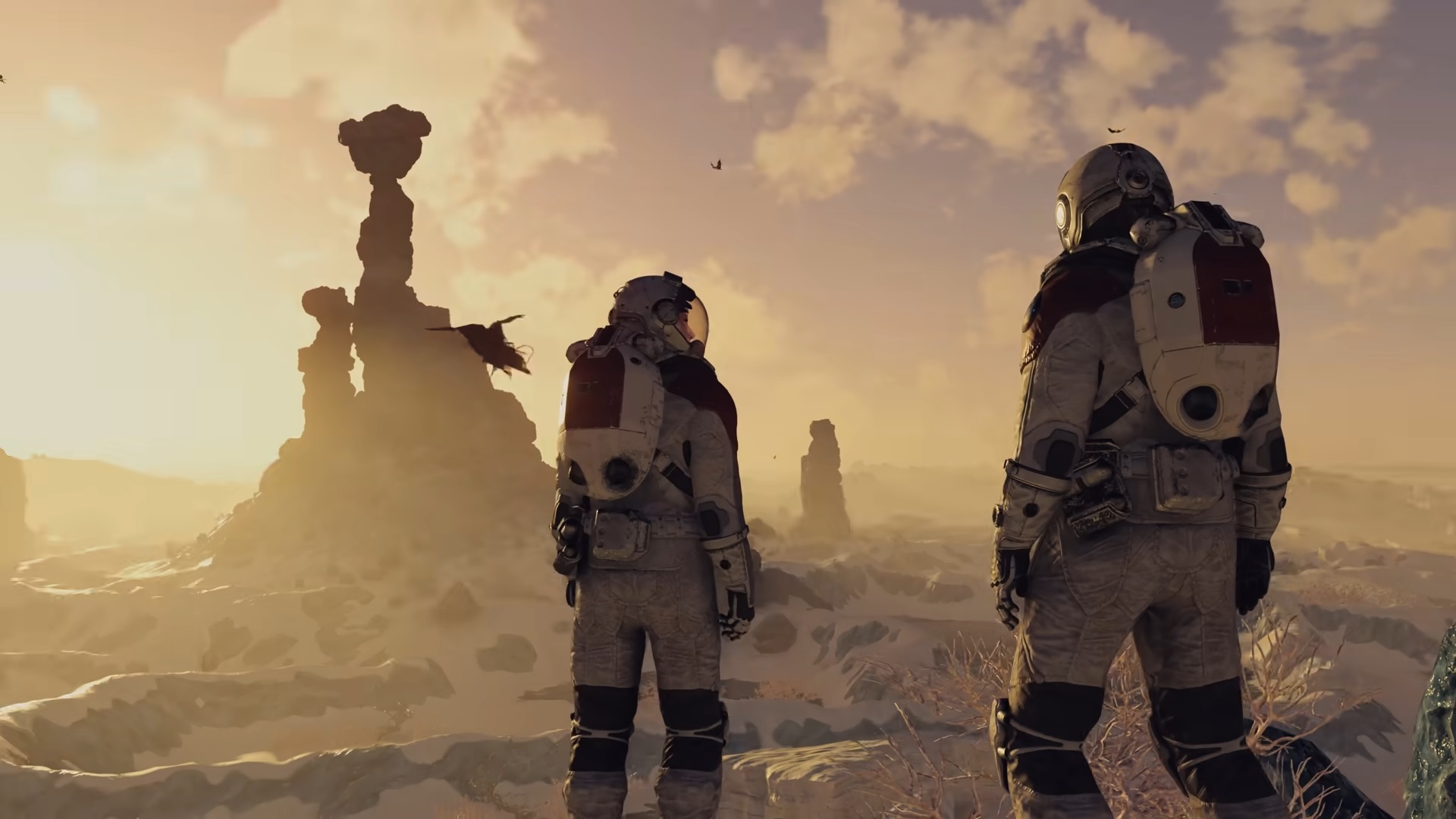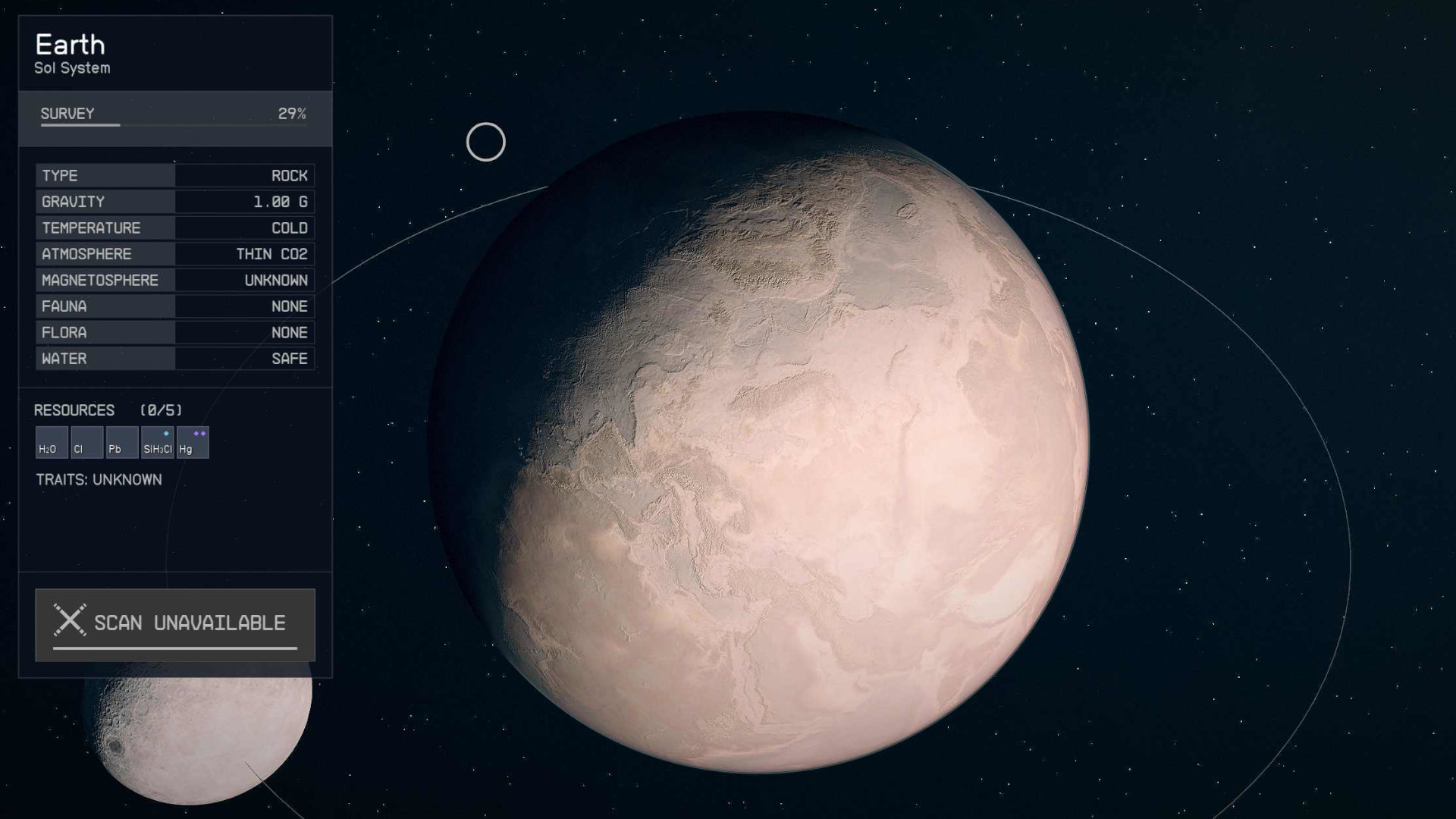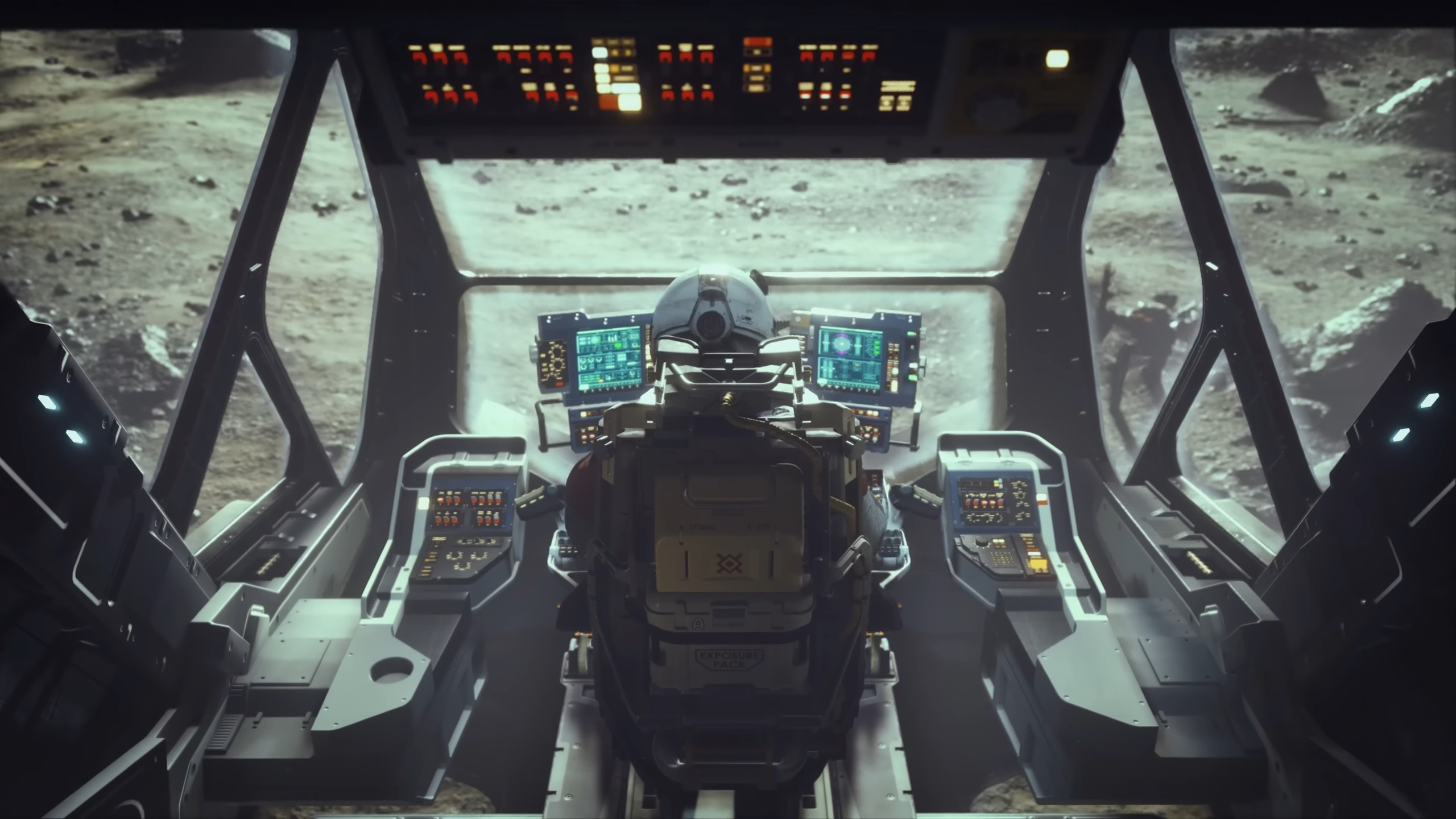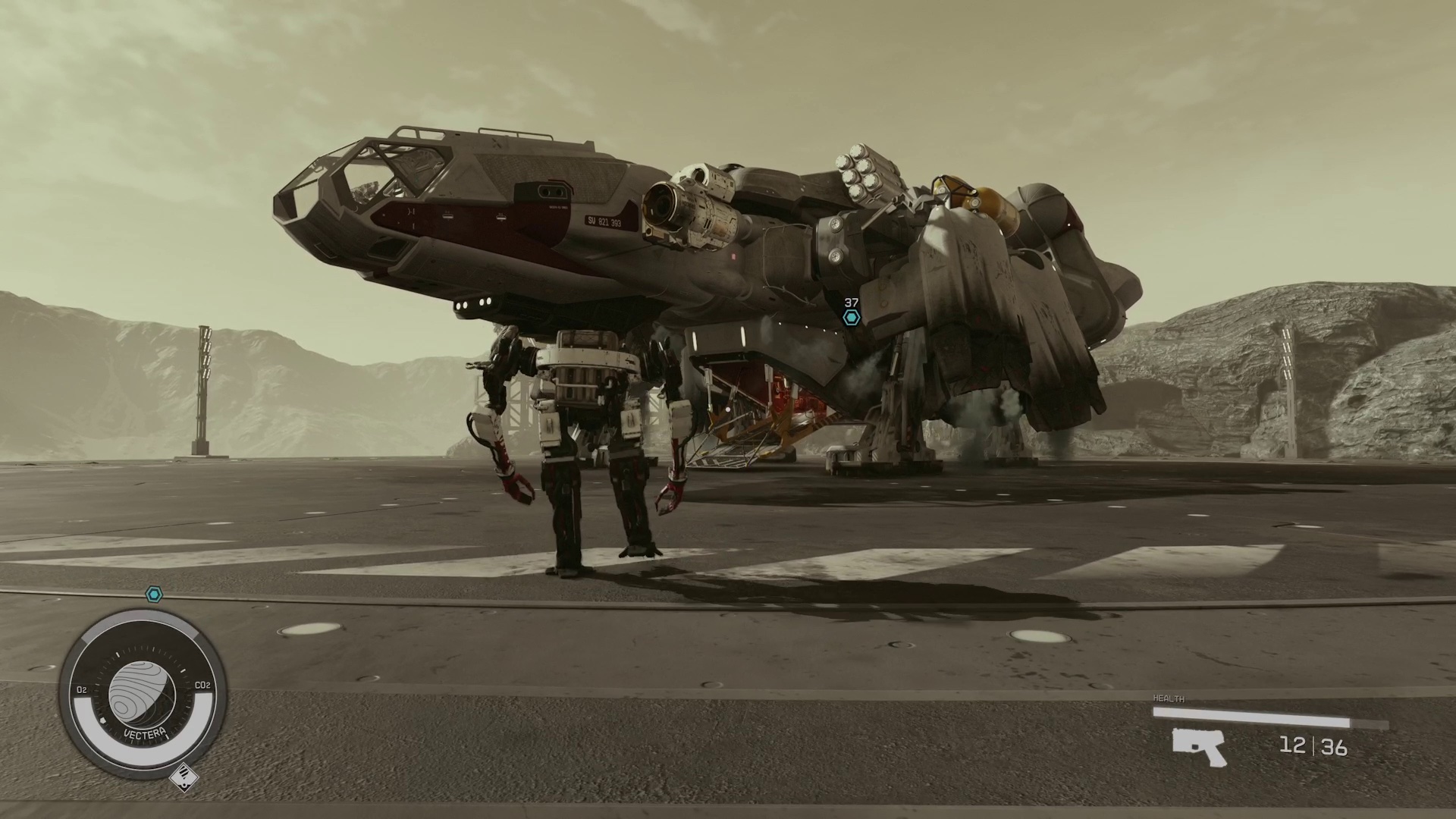Starfield isn't "Skyrim in space", and I'm torn on whether that's a good thing or a bad thing
Opinion | Starfield's slow burn sets apart from what's come before, for better and worse

When Todd Howard told the Washington Post that Starfield was "like Skyrim in space", the assertion split opinion. The comment – made during an interview in the summer of 2021 – served to both contextualize and help promote the incoming space-fairing RPG at the time, but it prompted calls for Starfield to go bigger and bolder than anything before it, among some would-be players who'd clearly had their fill of the The Elder Scrolls 5.
I hope that Starfield is more than "Skyrim in Space", said GR+'s own Josh West at the beginning of last year, for example, suggesting that had Skyrim's flame been allowed to dim similar to that of Morrowind and Oblivion's, then perhaps the idea of Tamriel among the stars would have felt more alluring. With three subsequent iterations of Skyrim between its 2011 launch and 2021 anniversary, though, our writer was preemptively tired of the prospect alone.
I, on the other hand, would happily have taken Skyrim in space. And while this wasn't the most popular opinion at the time, it's now irrelevant because Starfield isn't Skyrim in space at all. It's nothing like Skyrim in space, actually. And I'm both okay and slightly disappointed by this.
Spaced out


Starfield review: "The best thing Bethesda's done since Oblivion"
Starfield probably flies closer to Fallout in space, but it's really a different beast entirely. It's a slow burn that can take hours to get going. To me, it's a jack of all trades but a master of none. It's a hugely impressive undertaking that can be beautiful one minute, then cold and underwhelming the next. It's a sprawling RPG that's brought me joy and frustration in equal measure so far, but it's one that has properly captured my attention with its ambition and grandeur. On a selfish level, its dogfighting and ship-building were facets of the game that were never going to appeal to me personally, but I have loved the sense of wonder derived from its exploration – on a massive, interplanetary scale; right down to its scope for infiltrating tiny innocuous bases in the farthest-flung corners of the solar system.
This week, I said Starfield thrives in its quietest moments because few studios do implicit dread like Bethesda. In my time with the game to this point, this has been above and beyond my favorite thing – sneaking around inside places I'm definitely not welcome, while trying to locate something or someone I shouldn't be searching for. The longer I spend with Starfield, the clearer I am on why this is: these are the moments that tie Starfield to its predecessors while advancing the formula with VATS-free combat, intricate gunplay, and, of course, stunning visuals.

"To be clear: I was never wanting a like-for-like, high fantasy in the cosmos-type deal with Starfield, but there are some key tenets of Bethesda games I've missed this time around."
To be clear: I was never wanting a like-for-like, high fantasy in the cosmos-type deal with Starfield, but there are some key tenets of Bethesda games I've missed this time around. Last week, GR+'s Ali Jones suggested that after dragon attacks and nuclear war, Starfield's opening pales in comparison to Skyrim and Fallout, for example, and I couldn't agree more.
Squaring off against a giant and being batted away like a fly in the early stages of Skyrim, or being chased down the disused railway lines of Quarry Junction by Deathclaws in Fallout: New Vegas – these are defining, character-building moments in these game; inadvertent rites of passage that underline your insignificance in these worlds, simultaneously posing a challenge for you take this one on the chin, return overpowered down the line, and get your own back with murderous contempt.
Sign up to the GamesRadar+ Newsletter
Weekly digests, tales from the communities you love, and more
The scale of Starfield is what impedes these set-pieces from occurring early doors, of course. The aforementioned slow burn is great if you're willing and able to sink several hours of toing, fro-ing, and search-and-retrieving into the mainline quest before the bubbles start to surface. But by drawing out the core of what fuels Starfield's story, something is lost along the way – meaning Starfield could never really have been Skyrim in space at all. If you agree that Starfield is the best thing Bethesda's done since Oblivion, then that's likely a good thing. If you don't, it probably doesn't matter, because the same scale that separates Starfield from its forerunners is what facilitates so many other ways to grab and hold your attention. And for that, Bethesda deserves credit(s).
Here are 25 of the best RPGs you can (and should) check out right now

Joe Donnelly is a sports editor from Glasgow and former features editor at GamesRadar+. A mental health advocate, Joe has written about video games and mental health for The Guardian, New Statesman, VICE, PC Gamer and many more, and believes the interactive nature of video games makes them uniquely placed to educate and inform. His book Checkpoint considers the complex intersections of video games and mental health, and was shortlisted for Scotland's National Book of the Year for non-fiction in 2021. As familiar with the streets of Los Santos as he is the west of Scotland, Joe can often be found living his best and worst lives in GTA Online and its PC role-playing scene.


